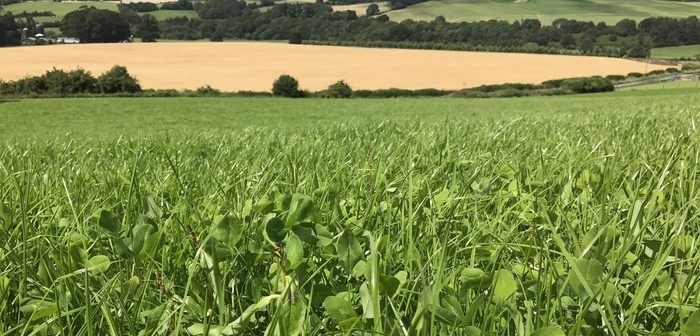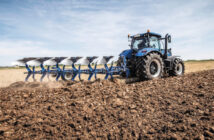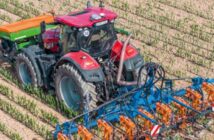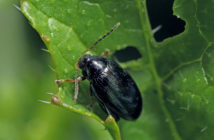Grass and forage seed specialist, Germinal, has begun new research with the Institute of Biological, Environmental & Rural Sciences (IBERS) at Aberystwyth University to develop a novel high protein livestock feed to be grown on farm reducing farmers reliance on imported soya.
The work aims to develop new strains of red clover with a unique growth pattern, capable of mirroring white clover’s longevity, while retaining red clover’s quality attributes to provide a new mainstream home-grown rich protein source for food-producing livestock.
The project is being funded by Germinal and the world-leading Centre for Innovation and Excellence in Livestock (CIEL), underlining both organisations’ commitment to support pioneering research with tangible on-farm application. Trials began at IBERS in July, with additional work being done on a farm at Germinal’s Research Station in Wiltshire.
Producing more protein-rich animal feed on farm rather than relying on imported soya increases economic and environmental sustainability, a key motivator for livestock farmers. As well as being high in protein, red clover can fix atmospheric nitrogen in the soil, reducing the need for applied synthetic fertiliser, offering sought-after economic and environmental benefits. It therefore has an important place in sustainable livestock systems but its use is currently hampered by it not being as robust as more commonly-used white clover.
White clover’s strength and ability to withstand grazing comes from the stolons, or “runners”, it sends out above the soil, with strong roots forming at regular intervals. It’s species name repens comes from the Latin for creeping, reflecting this method of growth. In contrast, red clover grows tall from a single growing point, making it more vulnerable to damage when grazed. Germinal is already producing longer-living standard red clovers, such as AberClaret, but the new red clover varieties will also have stolons opening up exciting new opportunities for livestock farmers wishing to produce meat and milk more sustainably.
“Red clover is a very attractive option for farmers,” said Paul Billings, Germinal’s Managing Director. “The development of varieties with stolons, able to resist intensive grazing, gives farmers a new tool to produce a cost-effective and productive feed. We are delighted to be working with two of the leaders in agricultural innovation on a project set to benefit food-producing sectors of the UK farming industry.”
Lyndsay Chapman, CIEL CEO added: “We recognise the numerous benefits this project offers to ruminant farmers, along with the positive environmental impact it can deliver. In addition to our seed funding investment in the project, CIEL-supported research capability at Aberystwyth University is an integral part of this study and will support further work validating predicted benefits of the new red clover strains for ruminants”.




